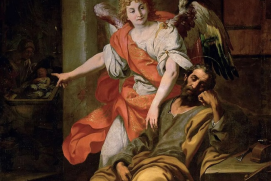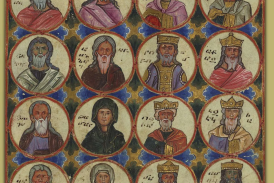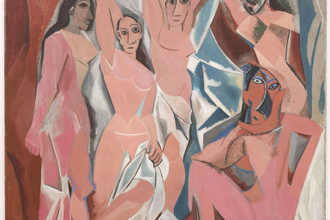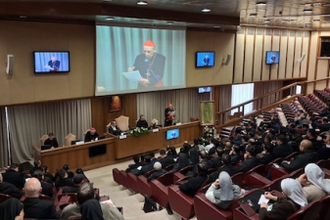Today's Gospel in Art - There was a rich man and he had a steward...
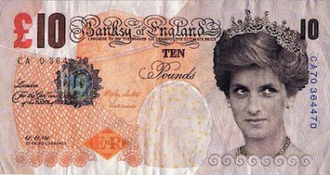
Di Faced Tenner, Conceived by Banksy, Custom bank note, Made in 2004, © Pest Control - Banksy
Gospel of 6th November 2020 - Luke 16:1-8
Jesus said to his disciples: 'There was a rich man and he had a steward denounced to him for being wasteful with his property. He called for the man and said, "What is this I hear about you? Draw me up an account of your stewardship because you are not to be my steward any longer." Then the steward said to himself, "Now that my master is taking the stewardship from me, what am I to do? Dig? I am not strong enough. Go begging? I should be too ashamed. Ah, I know what I will do to make sure that when I am dismissed from office there will be some to welcome me into their homes."
Then he called his master's debtors one by one. To the first he said, "How much do you owe my master?" "One hundred measures of oil" was the reply. The steward said, "Here, take your bond; sit down straight away and write fifty." To another he said, "And you, sir, how much do you owe?" "One hundred measures of wheat" was the reply. The steward said, "Here, take your bond and write eighty."
'The master praised the dishonest steward for his astuteness. For the children of this world are more astute in dealing with their own kind than are the children of light.'
Reflection on the fake bank note
Today's parable is not an easy one to understand. Even re-reading it several times, we may find it hard to understand all the layers present in this story. On the face of it, Christ appears to be commending dishonest behaviour. But that of course can't be right. The last sentence 'For the children of this world are more astute in dealing with their own kind than are the children of light' gives us a clue what the parable is about. Those people involved only with the world are more skilled in dealing with the machinations of the fallen world than are His followers who deal with eternal things. Our fallen world runs on a different set of standards from the Kingdom of God. If we want to be true followers of Christ, then we can't be giving in to the deceit and dishonesty prevalent in parts of this world.
Maybe Jesus is simply telling us today what money is really for. Our money isn't really ours. So when we use it to spread the Good News, then the benefits will last beyond this life. Jesus interpreted what currency was really for. An artist who also has very much his own take on interpreting currency is Banksy. 'Di Faced' is a pun on the word 'defaced' and refers to the fact that here Banksy has altered the familiar £10 note by replacing the portrait of Queen Elizabeth II with that of the late Princess Diana. Instead of 'Bank of England', the note reads, 'Banksy of England'. Under the banner, an inscription reads, 'I promise to pay the bearer on demand the ultimate price', a reference to the fate of the late Princess at the hands of the media. Long after the money of this world is gone, whether real currency or fake Banksy currency, what will matter is what we used it for - to enter the Kingdom of God.
LINKS
Today's story - https://christian.art/en/daily-gospel-reading/597
Christian Art - www.christian.art



